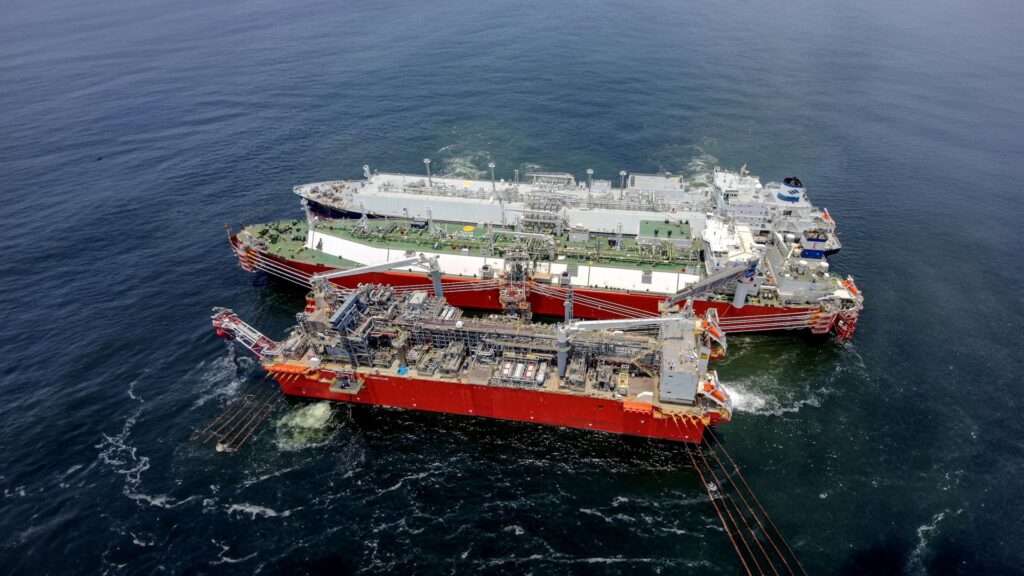Italian oil and gas giant Eni has strengthened its foothold in Côte d’Ivoire by acquiring exploration licenses for four additional offshore blocks.
This strategic move, signed in Abidjan during the inaugural International Exhibition of Extractive and Energy Resources (SIREXE), highlights the company’s commitment to bolstering its operations in the West African nation, also known as Ivory Coast.
“The blocks CI-504, CI-526, CI-706 and CI-708 cover a total area of about 5,720 square kilometres with a water depth ranging between 1,000 and 3,500 meters.
“[Its] proximity to the Calao discovery, made in Block CI-205, represents a strategic opportunity to create further synergies in the area.”
ENI
Eni has consistently demonstrated its ability to deliver results in Côte d’Ivoire, with its production currently at approximately 22,000 barrels of oil equivalent per day (boepd).
Two of its most notable discoveries in the region are the Baleine and Calao fields, which have positioned the country as a burgeoning energy hub in West Africa.
The company is gearing up for the next phase of development at the Baleine field. After successfully launching Phase 1, which began production in August 2023, “Eni is set to commence Phase 2 in December 2024.”
This phase will significantly boost production, increasing output to 60,000 barrels of oil per day (bopd) and 70 million cubic feet of associated gas per day.
The company’s long-term plans include a Phase 3 expansion, which is projected to increase production to 150,000 bopd and 200 million cubic feet of associated gas per day.
These developments align with Côte d’Ivoire’s ambitions to enhance its energy infrastructure and capitalize on its resource potential. The government has welcomed Eni’s investments, seeing them as vital to the country’s economic growth and energy self-sufficiency.
Eni’s activities in Côte d’Ivoire are part of a broader strategy to focus on core assets and high-potential regions.
Earlier this month, the company finalized the $1 billion sale of its Nikaitchuq and Oooguruk oil fields in Alaska to Hilcorp. The sale, which was first agreed upon in June 2024, reflects Eni’s efforts to rebalance its global portfolio by divesting non-core assets.
In 2023, the two Alaskan fields contributed approximately 20,000 barrels per day, accounting for just 1.2% of Eni’s total production. The proceeds from the sale are being reinvested into high-growth opportunities, such as its expanding operations in Côte d’Ivoire.
Unlocking New Opportunities

Eni’s acquisition of these exploration blocks marks a significant milestone in its West African strategy.
Under the terms of the agreement, Eni will have up to nine years to explore the new blocks, creating opportunities for additional discoveries and synergies with existing fields.
“The proximity of these blocks to the Calao discovery presents a strategic advantage for Eni.
“It enables us to optimize exploration and development activities, leveraging infrastructure and resources already in place.”
ENI
The deal further cements Eni’s role as a key player in Côte d’Ivoire’s oil and gas sector. Since entering the country in 2015, Eni has expanded its portfolio to include six other offshore blocks—CI-101, CI-205, CI-401, CI-501, CI-801, and CI-802—in partnership with state-owned Petroci Holding.
Côte d’Ivoire’s strategic location and untapped offshore potential have attracted interest from global energy players. The Calao discovery, combined with Eni’s continued investments, underscores the region’s significance in meeting global energy demand.
Eni’s acquisition of four new offshore blocks in Côte d’Ivoire represents a pivotal step in its expansion strategy in West Africa. The proximity of these blocks to the Calao discovery provides a unique opportunity to optimize operations and drive further exploration success.
As Côte d’Ivoire positions itself as a key player in the regional energy market, the partnership with Eni not only enhances the country’s resource utilization but also underscores the potential of West Africa’s offshore reserves.
For Eni, the move solidifies its commitment to growth in high-potential regions, reaffirming its role as a global leader in the energy sector.
READ ALSO: Chad Ends Defense Pact With France, Eyes Sovereignty




















